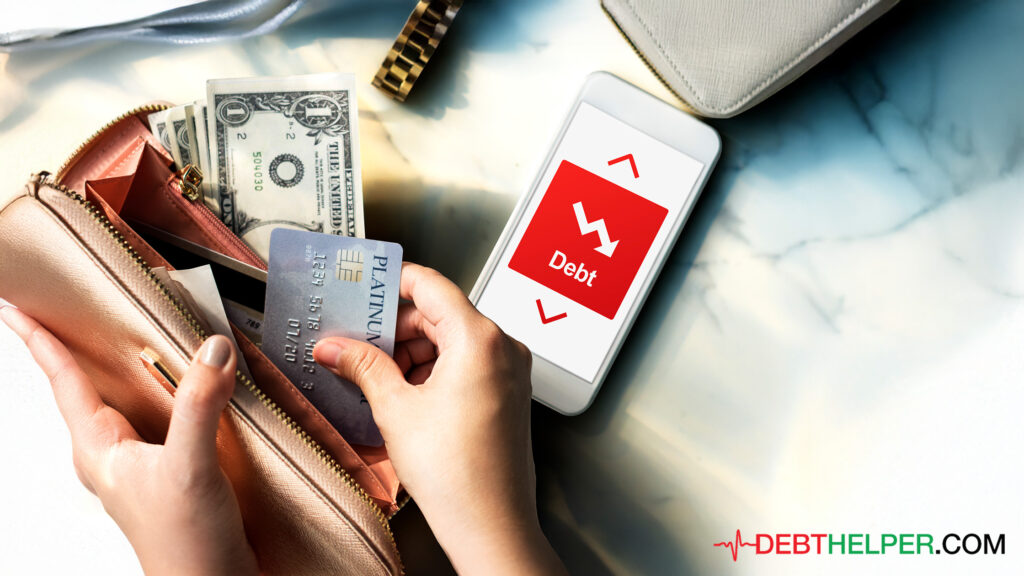Credit card debt is a common financial challenge faced by many, especially low-income earners. The high-interest rates, minimum payments, and ongoing charges can make it difficult to escape the debt cycle. However, with the right strategies and discipline, even those on a limited income can effectively manage and pay off credit card debt. In this comprehensive guide, we will explore the best Credit Card Debt Payoff Strategies tailored specifically for low-income earners, helping you regain control over your finances and build a more secure financial future.
Understanding Credit Card Debt and Why It’s a Problem for Low-Income Earners
Credit card debt accumulates when cardholders spend beyond their ability to repay the full balance each month. The debt becomes problematic due to:
- High interest rates: Credit cards often carry interest rates ranging from 15% to 32% APR or higher.
- Minimum payments trap: Paying only the minimum prolongs debt and increases total interest paid.
- Fees: Late fees, over-limit fees, and penalty rates add to the debt burden.
- Debt cycle: Increasing balances can lead to a cycle of borrowing to pay off debt.
For low-income earners, the challenge is amplified because limited income leaves less room for debt repayment, leading to longer payoff times and increased financial stress.
Why You Need a Clear Credit Card Debt Payoff Strategy
Without a plan, it’s easy to feel overwhelmed and uncertain about how to reduce your credit card balances. A clear Credit Card Debt Payoff Strategy helps you:
- Prioritize payments effectively
- Reduce interest charges
- Avoid late fees and penalties
- Improve your credit score over time
- Achieve debt freedom faster
Top 10 Credit Card Debt Payoff Strategies for Low-Income Earners
1. Assess Your Debt and Budget
Start by listing all your credit card debts with their current balances, interest rates, and minimum monthly payments. Then, create a detailed monthly budget to understand your income and expenses.
- Use budgeting apps or spreadsheets.
- Identify non-essential expenses to cut back on.
- Allocate as much as possible towards debt payments.
2. Prioritize Your Debts: Debt Avalanche vs. Debt Snowball
Two popular methods to pay off credit card debt are:
- Debt Avalanche: Pay off cards with the highest interest rates first while making minimum payments on others. This saves money on interest.
- Debt Snowball: Pay off the smallest balances first to gain momentum and motivation.
For low-income earners, the snowball method might help maintain motivation by quickly eliminating small debts. However, the avalanche method saves more money long-term.
3. Pay More Than the Minimum Payment
Paying only the minimum amount leads to prolonged debt payoff and higher interest payments. Aim to pay as much as you can afford above the minimum, even if it’s a small extra amount.
4. Negotiate Lower Interest Rates with Credit Card Companies
Call your credit card issuers and request a lower interest rate. If you have a history of on-time payments, they might reduce your APR, which can save you hundreds or thousands in interest.
5. Consider a Balance Transfer Credit Card
Balance transfer cards offer low or 0% introductory APR on transferred balances for a limited time (usually 12-18 months). This can help you pay off debt faster without accruing interest.
- Beware of transfer fees (typically 3-5%).
- Make sure to pay off the balance before the introductory period ends to avoid high rates.
6. Use a Debt Consolidation Loan
A personal loan with a lower interest rate than your credit cards can help consolidate multiple debts into a single monthly payment. This simplifies payments and can reduce your interest expense.
- Check eligibility criteria for low-income earners.
- Avoid adding new credit card debt while repaying the loan.
7. Generate Extra Income
Look for ways to increase your monthly income to accelerate debt payments:
- Freelance or part-time jobs
- Selling unused items online
- Utilizing skills for small gigs or services
Even small amounts of extra income can make a big difference over time.
8. Automate Payments to Avoid Late Fees
Set up automatic payments for at least the minimum amount to avoid late fees and protect your credit score.
- Late payments increase your interest rate.
- Automated payments ensure timely payments even during busy times.
9. Seek Professional Credit Counseling
Nonprofit credit counseling agencies can help you create a debt management plan (DMP), negotiate with creditors, and offer financial education.
- Verify the agency’s credentials.
- Avoid scams and upfront fees.
10. Avoid Using Credit Cards Until Debt is Paid Off
While working on debt payoff, avoid adding new charges on credit cards to prevent increasing your debt burden.
Creating a Personalized Debt Payoff Plan
Combining the above strategies effectively requires a personalized plan:
- Calculate your total debt and minimum payments.
- Set a realistic monthly payment goal beyond minimums.
- Choose a payoff method (avalanche or snowball).
- Cut unnecessary expenses and allocate savings toward debt.
- Explore income opportunities to increase payments.
- Monitor progress monthly and adjust your plan as needed.
Common Challenges Low-Income Earners Face in Debt Payoff and How to Overcome Them
- Challenge 1: Limited Disposable Income
Solution: Prioritize essentials, minimize discretionary spending, and find small savings on utilities, groceries, or subscriptions.
- Challenge 2: Unexpected Expenses
Solution: Build a small emergency fund ($250 to $1500) to cover urgent costs without relying on credit cards.
- Challenge 3: Lack of Financial Education
Solution: Use free resources like online courses, financial blogs, and counseling services to improve money management skills.
- Challenge 4: Emotional Stress and Overwhelm
Solution: Set small, achievable goals and celebrate milestones to stay motivated.
Benefits of Paying Off Credit Card Debt for Low-Income Earners
- Reduced monthly financial stress
- More disposable income for essentials and savings
- Improved credit score for future borrowing needs
- Avoidance of wage garnishment and legal actions
- Greater financial independence and security
Final Thoughts
Paying off credit card debt is challenging for low-income earners, but it’s definitely possible with a smart, disciplined approach. By assessing your debts, budgeting carefully, prioritizing payments, negotiating interest rates, and possibly seeking professional help, you can develop effective Credit Card Debt Payoff Strategies tailored to your situation. Remember, the key is consistency and commitment—every small payment takes you closer to financial freedom.
If you are struggling with credit card debt, start today by creating your personalized debt payoff plan. Your financial independence and peace of mind are worth the effort!





